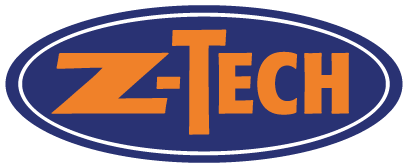Z-Tech provides intelligent engineering solutions. With over 250 staff, Z-Tech have a constantly expanding fleet of over 180 vehicles. Since their first Green Fleet Review with Energy Saving Trust in 2009, Z-Tech has taken on the challenge of reducing their fleet’s carbon dioxide (CO2) emissions and improving the sustainability of their fleet through the adoption of ultra low emissions vehicles (ULEVs).
Challenge
Z-Tech’s fleet is rapidly expanding and between 2014 and 2016 it increased in size by over 65%. Ensuring that miles per gallon (MPG), emissions and safety are kept in check while new drivers and vehicles are introduced is a challenge. Z-Tech also sets its own sustainability goals including ambitious CO2 reduction target of 15%.
Process
By analysing Z-Tech’s fleet and mapping access to existing charge points, Energy Saving Trust identified that costs and emissions could be significantly reduced as nearly half of Z-Tech’s vehicles could be replaced by ULEVs. Energy Saving Trust also highlighted a clear way to increase ULEV adoption, providing options for implementation, support and training.
To ensure successful uptake of ULEVs and more efficient driving, Z-Tech fostered a culture of change in their workforce from the board of directors downwards, and implemented initiatives such as:
- driver of the month, which incentivise environmentally conscious behaviour
- bespoke driver training programme run by a dedicated fleet manager to increase driver awareness
- regular spot checks as a feature of management meetings
In addition to providing training and reinforcing behavioural change, Z-Tech has focused on technology, installing speed limiters and cameras in all company vehicles. They have also changed their car allowance to incentivise electric and plug in vehicles as well as introducing a more fuel efficient mid-sized van model to the fleet.
Z-Tech also developed their own mobile optimised work tool Z-One, which features mileage management telematics software to provide in-depth analysis of MPG. Data collected also facilitates extended audits of fleets and automation of service scheduling to ensure vehicles are kept in optimum condition.
Results
As a result of working with Energy Saving Trust, Z-Tech has had a number of notable achievements:
- following on from a vehicle demonstration facilitated by Energy Saving Trust, two Nissan e-NV200 electric vans were purchased and an all-electric BMW motorbike is being trialled in partnership with Thames Water
- the introduction of a flexible ULEV focused policy has resulted in 38% of company cars (five out of 13) being plug-in or hybrid vehicles as of 2016. Z-Tech has no grey fleet, achieved by ensuring their vehicle policy is flexible
- MPG increased by 6% from June 2014 to June 2015 through shifting to more fuel efficient models, eg changing from a Transit to a Fiesta saves around 22% in fuel consumption. There is a commitment to continuing the shift to newer, more efficient vehicles every four years providing an opportunity to increase ULEV adoption
- an in-house scheduling tool for verification teams reduced re-visits and downtime by around 90% and associated carbon by 20% throughout 2014-15. The tool facilitates job re-scheduling, has reduced average vehicle miles from 29,000 to 23,000 miles and includes charge point mapping as an integrated solution
- CO2 reduction targets met ahead of schedule
Z-Tech’s commitment to improving the sustainability of their fleet has been recognised at Energy Savings Trust’s Fleet Hero Awards where they have received the Best Business Sector award two years running (in 2015 and 2016).
“Our software team have spent almost a year refining our Z-One management system into a fully functional mobile workflow solution – incorporating EV charge points and advanced mapping software.”
Nick McLauchlan, head of technology and innovation
